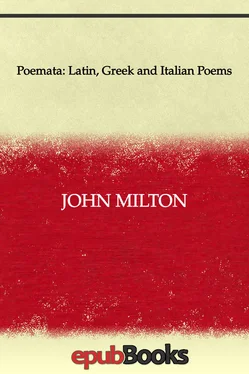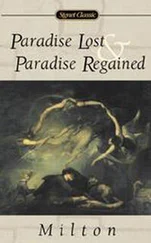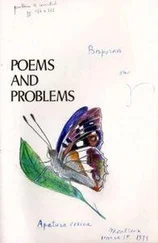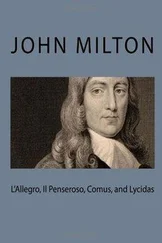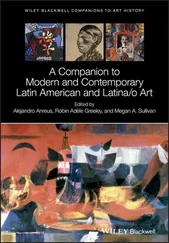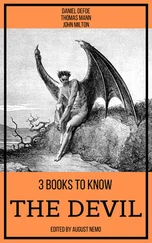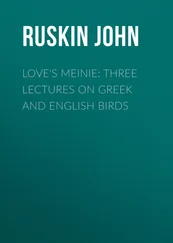Hence the Prime Mover wheels itself about
Continual, day by day, and with it bears
In social measure swift the heav'ns around.
Not tardier now is Saturn than of old,
Nor radiant less the burning casque of Mars.
Phoebus, his vigour unimpair'd, still shows
Th'effulgence of his youth, nor needs the God
A downward course that he may warm the vales;
But, ever rich in influence, runs his road,
Sign after sign, through all the heav'nly zone.
Beautiful as at first ascends the star [111] Venus.
From odorif'rous Ind, whose office is
To gather home betimes th'ethereal flock,
To pour them o'er the skies again at Eve,
And to discriminate the Night and Day.
Still Cynthia's changeful horn waxes and wanes
Alternate, and with arms extended still
She welcomes to her breast her brother's beams.
Nor have the elements deserted yet
Their functions, thunder with as loud a stroke
As erst, smites through the rocks and scatters them,
The East still howls, still the relentless North
Invades the shudd'ring Scythian, still he breathes
The Winter, and still rolls the storms along.
The King of Ocean with his wonted force
Beats on Pelorus, [112] The North–east promontory of Sicily.
o'er the Deep is heard
The hoarse alarm of Triton's sounding shell,
Nor swim the monsters of th'Aegean sea
In shallows, or beneath diminish'd waves.
Thou too, thy antient vegetative pow'r
Enjoy'st, O Earth! Narcissus still is sweet,
And, Phoebus! still thy Favourite, and still
Thy Fav'rite, Cytherea! [113] The Hyacinth, favorite of Apollo. The Anemone, favorite of Venus.
both retain
Their beauty, nor the mountains, ore–enrich'd
For punishment of Man, with purer gold
Teem'd ever, or with brighter gems the Deep.
Thus, in unbroken series all proceeds
And shall, till, wide involving either pole,
And the immensity of yonder heav'n,
The final flames of destiny absorb
The world, consum'd in one enormous pyre!
V
On the Platonic 'Ideal' as It Was Understood by Aristotle
Ye sister Pow'rs who o'er the sacred groves
Preside, and, Thou, fair mother of them all
Mnemosyne, [114] Goddess of Memory and mother of the Muses.
and thou, who in thy grot
Immense reclined at leisure, hast in charge
The Archives and the ord'nances of Jove,
And dost record the festivals of heav'n,
Eternity!—Inform us who is He,
That great Original by Nature chos'n
To be the Archetype of Human–kind,
Unchangeable, Immortal, with the poles
Themselves coaeval, One, yet ev'rywhere,
An image of the god, who gave him Being?
Twin–brother of the Goddess born from Jove, [115] Pallas Athena.
He dwells not in his Father's mind, but, though
Of common nature with ourselves, exists
Apart, and occupies a local home.
Whether, companion of the stars, he spend
Eternal ages, roaming at his will
From sphere to sphere the tenfold heav'ns, or dwell
On the moon's side that nearest neighbours Earth,
Or torpid on the banks of Lethe [116] Waters of oblivion and forgetfulness.
sit
Among the multitude of souls ordair'd
To flesh and blood, or whether (as may chance)
That vast and giant model of our kind
In some far–distant region of this globe
Sequester'd stalk, with lifted head on high
O'ertow'ring Atlas, on whose shoulders rest
The stars, terrific even to the Gods.
Never the Theban Seer, [117] Tiresins. See Milton's Sixth Elegy, line 68.
whose blindness proved
His best illumination, Him beheld
In secret vision; never him the son
Of Pleione, [118] Hermes (Mercury).
amid the noiseless night
Descending, to the prophet–choir reveal'd;
Him never knew th'Assyrian priest, [119] Perhaps the legendary Phoenician sage, Sanchuniathon.
who yet
The ancestry of Ninus [120] A legendary Assyrian king. Belus is the Assyrian god Bel.
chronicles,
And Belus, and Osiris far–renown'd;
Nor even Thrice–great Hermes, [121] Hermes Trismegistus, author of Neo–Platonic works must esteemed.
although skill'd
So deep in myst'ry, to the worshippers
Of Isis show'd a prodigy like Him.
And thou, [122] Plato.
who hast immortalized the shades
Of Academus, if the school received
This monster of the Fancy first from Thee,
Either recall at once the banish'd bards
To thy Republic, or, thyself evinc'd
A wilder Fabulist, go also forth.
Oh that Pieria's spring [123] A fount sacred to the Muses.
would thro' my breast
Pour its inspiring influence, and rush
No rill, but rather an o'erflowing flood!
That, for my venerable Father's sake
All meaner themes renounced, my Muse, on wings
Of Duty borne, might reach a loftier strain.
For thee, my Father! howsoe'er it please,
She frames this slender work, nor know I aught,
That may thy gifts more suitably requite;
Though to requite them suitably would ask
Returns much nobler, and surpassing far
The meagre stores of verbal gratitude.
But, such as I possess, I send thee all.
This page presents thee in their full amount
With thy son's treasures, and the sum is nought;
Naught, save the riches that from airy dreams
In secret grottos and in laurel bow'rs,
I have, by golden Clio's [124] The Muse of History.
gift, acquir'd.
Verse is a work divine; despise not thou
Verse therefore, which evinces (nothing more)
Man's heav'nly source, and which, retaining still
Some scintillations of Promethean fire,
Bespeaks him animated from above.
The Gods love verse; the infernal Pow'rs themselves
Confess the influence of verse, which stirs
The lowest Deep, and binds in triple chains
Of adamant both Pluto and the shades.
In verse the Delphic priestess, and the pale
Tremulous Sybil make the Future known,
And He who sacrifices, on the shrine
Hangs verse, both when he smites the threat'ning bull,
And when he spreads his reeking entrails wide
To scrutinize the Fates envelop'd there.
We too, ourselves, what time we seek again
Our native skies, and one eternal Now
Shall be the only measure of our Being,
Crown'd all with gold, and chanting to the lyre
Harmonious verse, shall range the courts above,
And make the starry firmament resound.
And, even now, the fiery Spirit pure
That wheels yon circling orbs, directs, himself,
Their mazy dance with melody of verse
Unutt'rable, immortal, hearing which
Huge Ophiuchus [125] The Serpent, a constellation.
holds his hiss suppress'd,
Orion, soften'd, drops his ardent blade,
And Atlas stands unconscious of his load.
Verse graced of old the feasts of kings, ere yet
Читать дальше
